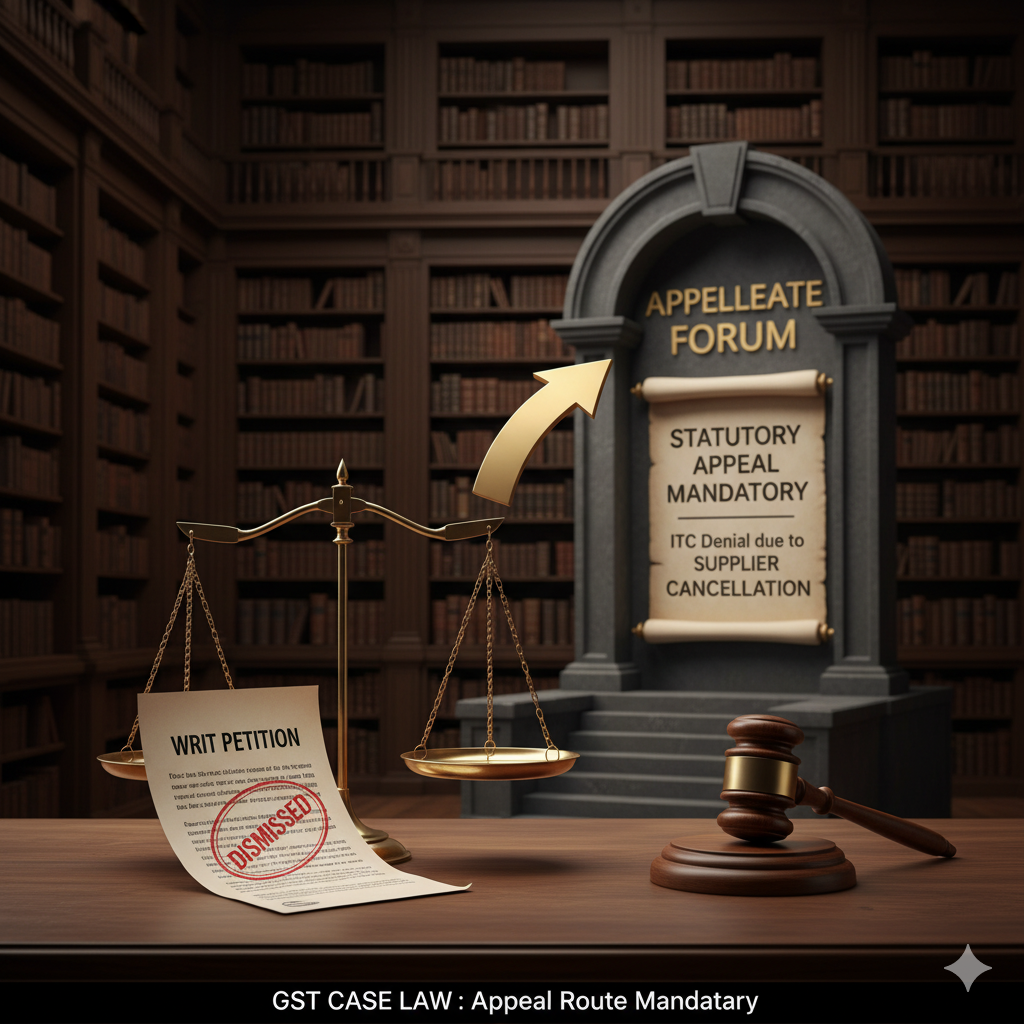
Case Details
Case: M/s Siddharth Metals Through its Proprietor Mr. Siddharth Jain v. The Assistant Commissioner of State Tax
Citation: Writ Petition No. 33358 of 2025; Neutral Citation: 2025:MPHC-IND:24522
Court/Bench: High Court of Madhya Pradesh, Indore
Coram: Hon’ble Vivek Rusia, J. & Hon’ble Binod Kumar Dwivedi, J.
Date of Decision: 29-08-2025
Issue
Whether a writ under Article 226 lies against a GST Order-in-Original when an efficacious appellate remedy under section 107 CGST/SGST Acts is available.
Facts
Petitioner, a trader in iron and steel, availed ITC for FY 2019-20, 2021-22 and 2022-23.
Department viewed ITC as ineligible due to suppliers’ registrations being retrospectively cancelled.
SCN under section 74 issued on 15.04.2025; reply filed on 15.05.2025.
Order-in-Original dated 06.06.2025 demanded tax ₹62,44,898, interest ₹54,49,529, and equal penalty; petitioner filed writ instead of appeal.
Held
It was held that the writ petition is not maintainable in view of the efficacious appellate remedy. Relying on State of Maharashtra v. Greatship (India) Ltd., (2022) 17 SCC 332, the Court dismissed the writ and relegated the petitioner to file an appeal, noting that pre-deposit requirements cannot justify bypassing the statutory forum.
Ratio / Key Principle
When a statutory appeal lies against an assessment/OIO, writ jurisdiction should not be invoked save in exceptional circumstances; taxpayers must pursue section 107 remedies.
Suggestion for Professionals / Businesses
Upon receiving adverse OIOs, promptly file section 107 appeals within limitation and arrange the 10% pre-deposit to safeguard rights. Preserve supplier-level evidence (registrations, invoices, e-way bills, payment trails) to contest ITC denials before appellate authorities.


